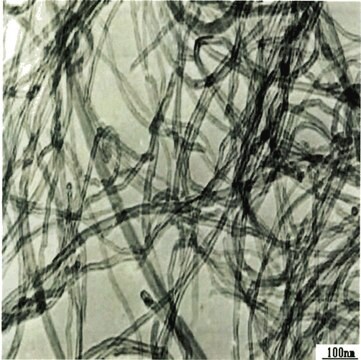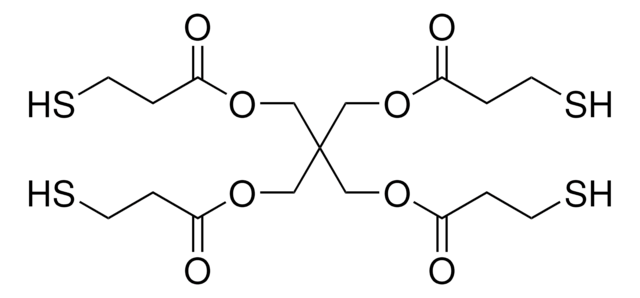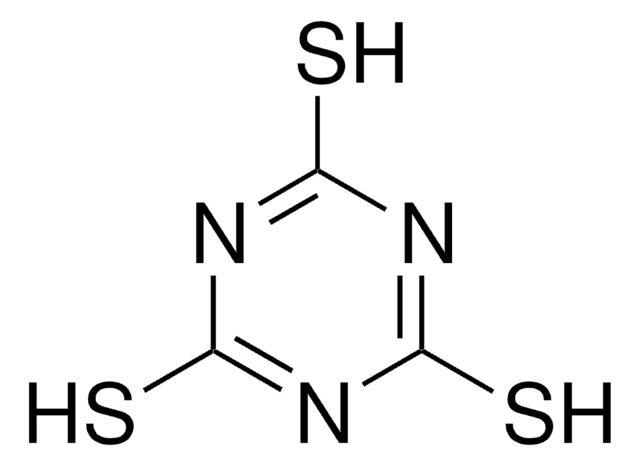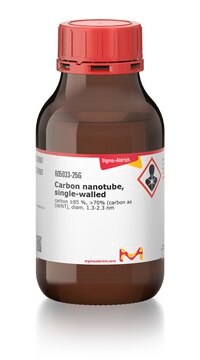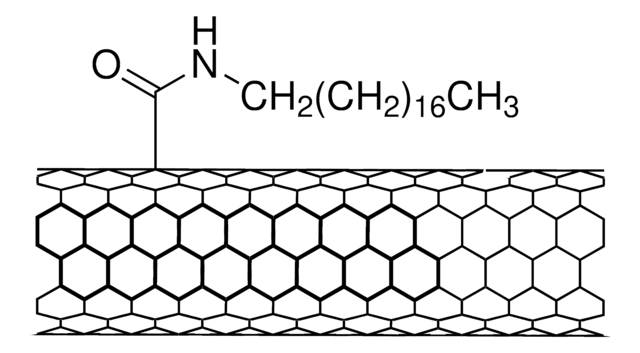755141
Carbon nanotube, double-walled
short, ≤10% Metal Oxide(TGA)
Synonym(s):
NC-2150, DWNT, Double wall carbon nanotubes
About This Item
Recommended Products
form
powder
avg. diam. × L
3.5 nm × 3 μm , TEM
impurities
≤10% Metal Oxide (TGA)
Looking for similar products? Visit Product Comparison Guide
General description
Application
- Electronics
- Sensors
- Composites
- Energy Storage
- Study of Life Science systems
Preparation Note
Legal Information
Storage Class Code
11 - Combustible Solids
WGK
WGK 3
Flash Point(F)
Not applicable
Flash Point(C)
Not applicable
Choose from one of the most recent versions:
Certificates of Analysis (COA)
Don't see the Right Version?
If you require a particular version, you can look up a specific certificate by the Lot or Batch number.
Already Own This Product?
Find documentation for the products that you have recently purchased in the Document Library.
Customers Also Viewed
Articles
Boron nitride nanotubes (BNNT) are close structural analogs of carbon nanotubes (CNT), which are high aspect ratio nanotubular material, where carbon atoms are alternately substituted by nitrogen and boron atoms.
Carbon nanotubes (CNTs) have received much attention since their discovery in 1991 by Sumio lijima1 due to their excellent mechanical, electrical, and optical properties.
A nanocomposite is typically defined as a mixture between a host material (e.g., polymer matrix) and nanofillers with at least one dimension of less than 100 nm.
Graphene is a one-atomic-layer thick two-dimensional material made of carbon atoms arranged in a honeycomb structure. Its fascinating electrical, optical, and mechanical properties ignited enormous interdisciplinary interest from the physics, chemistry, and materials science fields.
Our team of scientists has experience in all areas of research including Life Science, Material Science, Chemical Synthesis, Chromatography, Analytical and many others.
Contact Technical Service
